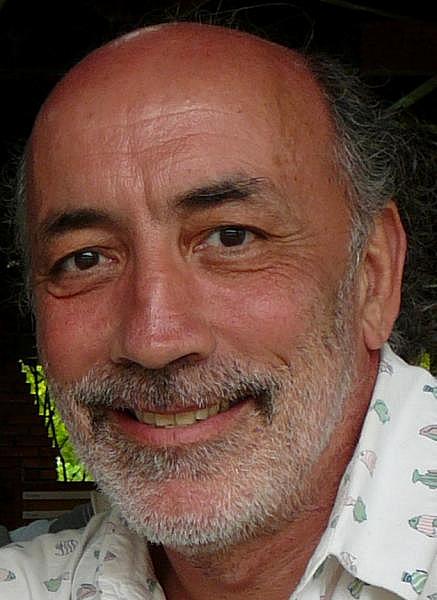Q&A with Duff Wilson: The Food Lobby Makes Pharma Look Lightweight

Investigative reporters everywhere of a certain age feel like they know Duff Wilson, even if they haven’t met him. When the Internet was new, Wilson created Reporter’s Desktop. If you were smart, you made it your homepage and used it religiously because it contained nearly every tool you’d need to find your way to a good story. Wilson would know how to create such a toolkit. He has unearthed some deeply buried secrets, while working at the Seattle Times, the New York Times and now for Reuters. He did it in agriculture, in pharmaceuticals and now in the food industry.
This Thursday, as part of the 2012 National Health Journalism Fellowship in Los Angeles, he will address the story that has everyone talking about food lobbying: How Washington went soft on childhood obesity. I asked him via email about how he did that story. His responses are below. They have been edited for space and clarity.
Q: A lot of health writers may not have spent time with records that document lobbying efforts. You are a veteran at this point having covered the pharmaceutical industry so closely for the New York Times. What records did you find the most helpful for this piece on obesity and how did you access them?
A: Federal lobbying reports are available through the Clerk of the House of Representatives and Secretary of the Senate. More to the point, they’re easily available through Open Secrets from the Center for Responsive Politics at http://www.opensecrets.org. The Sunlight Foundation also links to them through Influence Explorer at http://influenceexplorer.com/. And if anybody needs state lobbying reports, a good place to start is the National Institute on Money in State Politics, http://www.followthemoney.org.
The federal lobbying reports show how much a lobbyist or a company spent, what other clients the lobbyist has, and some limited description of what agencies or what legislation were the focus of the lobbying. And, of course, they have the lobbyist’s phone number. Call ‘em.
Q: In reading the series, part of my reaction was, “Of course.” Any industry facing potentially new regulations – even if they start as voluntary guidelines – is going to lobby against them. You have covered a lot of industries at this point. Was there something about this lobbying effort, either in its execution or its success rate, that you think makes it stand out from efforts by the pharmaceutical industry, the agricultural products industry or others?
A: Their almost perfect success record – except possibly for a setback or two for the industry in the separate nation of New York City. The food industry absolutely crushed a rising challenge in four agencies of the Obama administration. And the beverage industry won in every statehouse where anybody mentioned a soda tax.
We’re years past the point where industries have started making voluntary improvements in their products and kids’ marketing. Regulation and taxes aren’t a new idea. The inter-agency working group marshaled a lot of support for stronger measures. That was deep-sixed. Leading public health authorities are calling for taxes on sugary sodas as a smart way to reduce obesity and health burdens. Selective taxation already is working against cigarettes and alcohol. But the food industry has made the notion seem un-American.
The food industry is a vertically integrated political goliath, from farmers to manufacturers 
Q: One of the most impressive things about the piece was how you got so many people in the food industry to talk with you. What was your approach with them? And how early in the investigative process did you talk with people from the industry?
A: I talked with lobbyists and other people in the food industry at the very start of my reporting. Because the story was about HOW they had been so successful in fighting off taxes and marketing restrictions, they wanted to talk. They’re proud of their success. They say success has a thousand fathers. And they referred me to other people.
In exploring the “hows” of this story, my approach was to ask them to talk about the politics. There are many policy arguments on all sides of these issues, but I wanted to go deeper into the pure politics. And there’s fertile ground. The more savvy people in the industry will talk about political strategies and considerations because that’s what they do -- nothing wrong with being political.
The academics and activists and staffers who were on the losing side of these political battles were also happy to talk about them, and in longer conversations about the political action, surprising themes emerged. Like the White House going “wobbly,” in Sen. Tom Harkin’s term.
Q: One of the big comebacks the industry has to criticism is that there is no causal link between food marketing and obesity. This, to me, seems to lie somewhere between the line the tobacco industry used to take about cigarettes not causing cancer and the standard response from violent video game manufacturers that their games don’t cause violence. Explain a little bit about why it would be difficult to prove that causal link.
A: I think you need large, placebo-controlled, randomized trials to really prove causation. And nobody wants to do that with junk food and child obesity. That would seem sort of unethical to inflict junk food on one set of children and vegetables on another to see how they turned out. The proof question gets difficult again in proving illness later in life, too.
It’s true their arguments about lack of causation echo those of the tobacco industry. It has always been the key argument. But it’s ultimately a scientific issue and you have to account for the difference between association and causation.
I think there is evidence associating kids who watch a lot of TV with obesity, but there is no proof yet that it is the junk food ads on TV that ultimately cause the obesity. Of course, advertising works. I say “junk food” in the broad sense there, meaning that much less nutritious food is advertised on children’s TV than exists in the general diet. I think there is evidence that the kids who watch all this TV and become overweight generally exercise about as much as kids who don’t become overweight. But there is a missing link in scientific evidence there. Scientists can’t just surmise something is causation or say that it is logical. They have to prove it. They haven’t. Studies are underway.
Q: Healthy food advocates can be evangelistic to the point of zealous. Some will not be pleased until most of the food sold is organically produced and locally sourced. I have had discussions with some who have flat out said that there’s nothing a McDonald’s or a Pepsi could do to improve food options because they are, by their nature, bad for our health. How did you navigate that terrain in your reporting?
A: I moved past policy arguments quickly to focus on political tactics and strategies. Policy is debatable. Politics is action.
Food is a fascinating arena to cover and to investigate. People really care. There is tremendous money involved. Obesity and illness related to unhealthy food is still rising, especially in developing nations, where soda companies, perhaps not coincidentally, are finding more upside to their marketing and sales.
Food is not tobacco, but the food industry is doing a lot of things the tobacco industry did. It feels like the politics, debates and disclosures are just beginning.
Image by Vox Efx via Flickr

